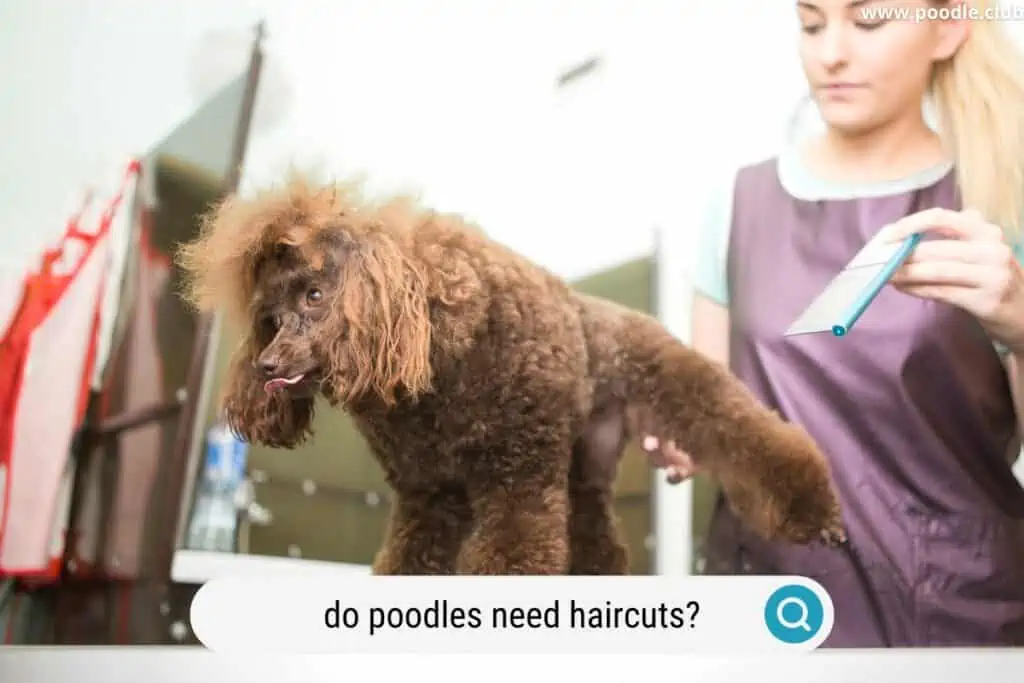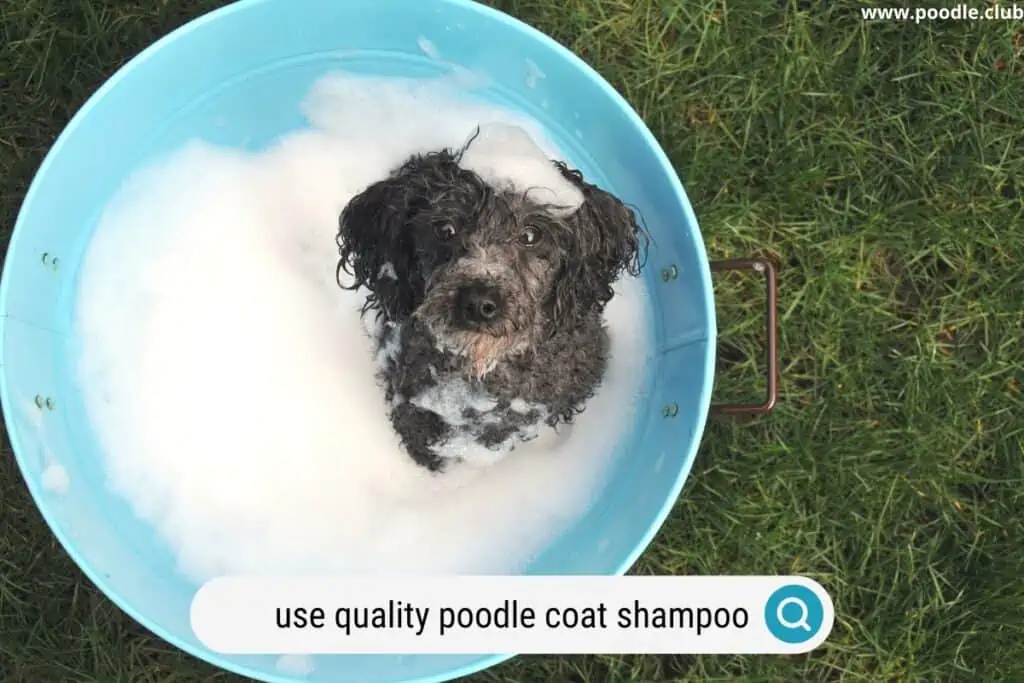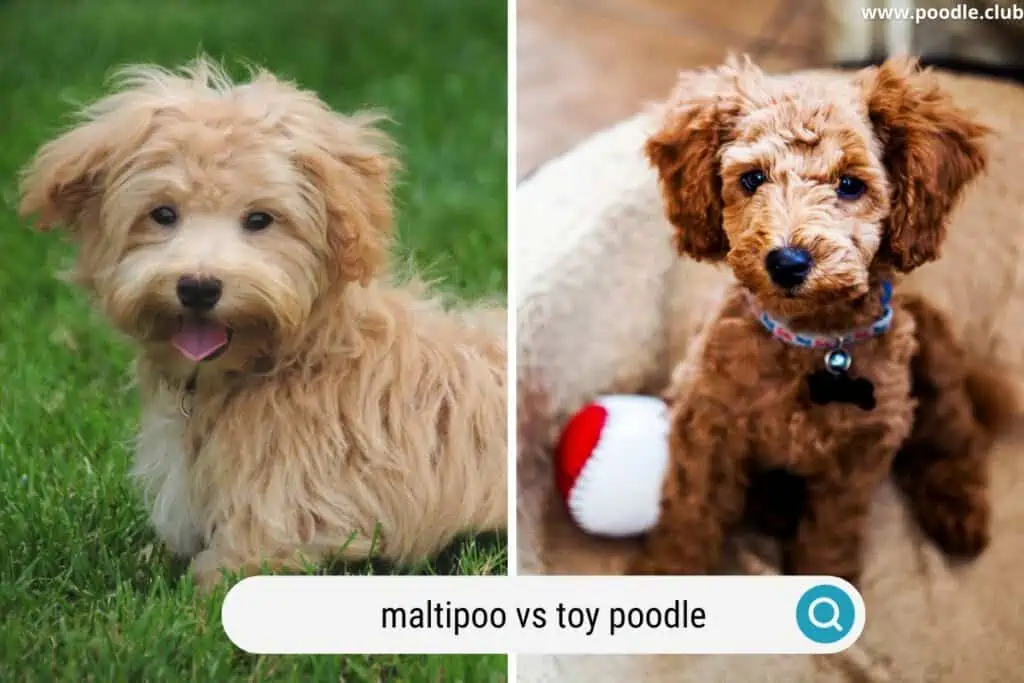Do Poodles Shed? [Poodle Shedding Guide]
Whether you are concerned about allergies or constantly sweeping up stray hairs, finding out whether or not a dog sheds is important when looking to adopt.
Poodles are a popular option for many reasons. Their energy, loyalty, and signature curly-haired look are among those reasons. Their adorable curls are one of their main appeals, but the question remains. Do Poodles shed?

Do Poodles Shed?
The quick answer is yes! Poodles shed, as all dogs shed. However, this should not deter you from bringing home that new furry friend. Poodle fur is unique and much easier to manage than other dog breeds.
While it is a myth that Poodles do not shed, there is some level of truth in it. Poodles shed substantially less than other breeds.
Poodles do not have a seasonal coat like other dogs, and they do not shed the same quantity that other breeds might. Their distinctive fur makes them the ideal pet for many people who want all the perks of having a dog without the downside of excessive shedding.
Why Do Poodles Shed?
Dogs shed their fur similarly to how humans lose their hair. Many factors can affect this shedding, such as environment, stress, or an underlying health condition. There is no need to worry! More often than not, shedding is completely normal. If you feel like your dog is shedding excessively, bring them to the vet to see if there is an underlying cause.

All dog breeds, including Poodles, shed their fur.
PuppySpot is a reputable dog marketplace where you can browse and find compatible puppies right from the comfort of your home. They have placed over 200,000 puppies into homes in the US!
Some breeds, such as beagles or labs, shed faster or more often than others. Dogs use their fur as a way to regulate their body temperature. Because of this, many dogs require thicker fur in the winter to keep them warm.
Some breeds have a second coat of fur, called an undercoat, that helps protect them in the winter. Once the warm weather returns in spring, dogs shed their winter coats to keep cool in the summer heat.
Poodles do not have an undercoat, which is another reason why they may not shed as much as other breeds. Poodles were bred to be hunting dogs year-round. They would be required to enter bodies of water to retrieve birds such as ducks for their owner, and their thick, curly hair helped keep them warm in colder water. In warmer weather, their hair is often shaved to keep them cool.
Instead of having a shedding season, Poodles lightly lose their fur throughout the year as they grow in new fur.

Why Poodle Fur is Unique
Poodles technically do not have fur – they have hair. With most breeds, their fur will grow to a specific length and then fall out in a process known as shedding. Poodle hair, if not maintained, will continue to grow until it is cut. This growth is one of the reasons it is important to take your Poodle to the groomer frequently for trims or hair cuts.
Poodle hair is similar to humans in that it is affected by many different factors. When the dog is stressed or going through a hormonal change, such as having puppies, its hair can become thin or fall out more frequently. Again, take your Poodle to the vet if you notice a drastic change in the amount of hair they are losing.
Another thing that makes Poodle hair so unique is its texture. Their hair is coarse in texture, with tight curls that give them their signature look. Their curls are so tight that when they do shed, the fallen hairs get tangled in the curls instead of falling off. This is what gives them the illusion of not shedding. Their curls catch most of their shed hair, so there’s less mess to clean up around your home.
Regularly brushing your Poodle will help remove their loose or fallen hair and prevent it from getting on your furniture or clothing.

Do All Types of Poodles Shed?
There are three different types of Poodles. There are standard Poodles, miniature Poodles, and toy Poodles. The main difference between these three Poodles is that they vary in size. Standard Poodles can grow to be ninety pounds, while toy Poodles are small enough to fit in a purse. Despite their size differences, the shedding factor remains the same.
Each type of Poodle does shed, just much less than other dog breeds.
Poodle Mixes
Another factor that could influence how much your dog sheds is whether or not they are mixed with a breed that sheds more heavily. If your Poodle is mixed with a breed such as a Bichon Frise, they will likely remain light shedders. This shedding is because Bichon Frise shed at a rate similar to Poodles, lightly losing fur year-round.
If your Poodle is mixed with a Labrador or a Shepherd, they may shed more than a typical Poodle. These breeds are typically heavy shedders with long fur and an undercoat. Having a Poodle mix with these breeds may affect how your Poodle sheds. These mixes may have a more dramatic shedding season if they have to rid themselves of their winter coat.
If shedding is a make-or-break factor when purchasing a dog, researching the specific Poodle mix before adopting is advised.

How to Groom a Shedding Poodle
Unique fur requires unique attention. The curly texture of the hair makes it easy for things to get tangled or caught in it. It also gets matted or knotted easier than finer fur might. There are many ways to help care for your pet’s hair to minimize shedding and other complications. The most important way to care for your Poodle’s fur is to regularly brush your pet.
There are many different types of dog brushes on the market. Different styles of these dog brushes have many benefits. The benefits of brushing your Poodle include:
- Help loosen and remove dirt from their fur
- Remove tangles and prevent matting
- Spread natural oils throughout their fur
- Massage and relax your dog
- A healthier, shinier fur coat
Different types of brushes have different effects. When brushing your dog, especially with a wire-toothed brush, you should always brush gently to avoid injuring your dog. Softer brushes may be able to withstand more pressure.
You should bathe your Poodle once every three weeks to help refresh their skin and fur. Bathing your Poodle will help keep its hair clean and free of anything that may get caught in its curls. Investing in a Poodle shampoo with a detangling agent may help prevent knots or matting in the future.
Washing your Poodle may also help ease allergy symptoms for those suffering from dog allergies by removing excess dander.
Are Poodles Hypoallergenic?
Many people believe that since Poodles do not shed as much as other dogs they must be hypoallergenic. This belief is not true. Allergic people might have less of a reaction around this breed due to less shedding, but no dog is truly hypoallergenic.
Many dog allergies are in reaction to the animal’s saliva, skin (dander), or urine. Therefore, it is still possible to have allergic reactions around Poodles.
Despite not being 100% hypoallergenic, Poodles are still considered one of the bed dog breeds for people with allergies to have. Check with your allergist to see if a Poodle is compatible with your allergies.
Is a Poodle a Good Choice for Allergies?
Poodles, like all dogs, do shed. The main difference is that Poodles do not shed as much or as frequently as other breeds. Their curly hair helps catch the hair that they do shed, so they make less of a mess.
If you’re looking for a dog that won’t shed all over your couch, a Poodle may be a great fit. If you’re looking for a dog that won’t trigger your allergies, consult your allergist before purchasing your pooch.




![Can Poodles Swim? [Water Guide]](https://poodle.club/wp-content/uploads/2022/12/can-poodles-swim-768x512.webp)


![Do Poodles Need Haircuts? [The TRUTH]](https://poodle.club/wp-content/uploads/2022/12/do-poodles-need-haircurs-768x512.webp)